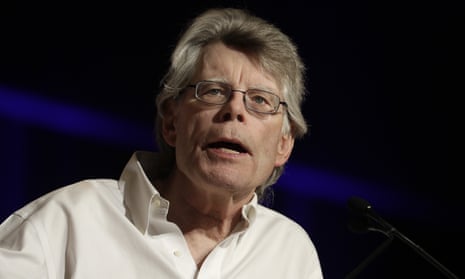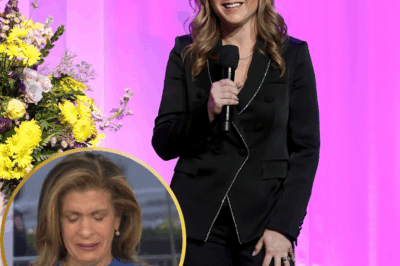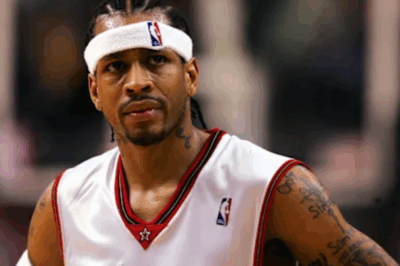Stephen King has officially earned a new, terrifying title: The Most Banned Author in America. The master of horror is now the king of the forbidden.
In a startling revelation that has sent ripples through the literary community and beyond, renowned author Stephen King has publicly stated that he is now the most banned author in the United States.
This claim, made amidst ongoing debates about censorship, free expression, and the evolving boundaries of literature, raises important questions about the current state of book bans and the cultural climate that fosters them.
The Context: A Long History of Book Bans in America
For decades, the United States has grappled with the contentious issue of book censorship.
From the early 20th century to the present day, certain books—often those tackling controversial topics such as sexuality, violence, race, or political dissent—have faced bans or challenges in schools, libraries, and communities across the country.

Historically, authors like Mark Twain, Allen Ginsberg, and Toni Morrison have faced censorship efforts, often reflecting societal anxieties or moral panics.
However, in recent years, the scope and intensity of book bans have escalated dramatically, fueled by political polarization, cultural conflicts, and the influence of social media campaigns.
Stephen King: A Literary Icon Under Siege
Stephen King, the prolific author whose works have shaped the horror, supernatural fiction, and suspense genres for over five decades, has long been celebrated for his storytelling prowess and cultural impact.
With over 60 novels and 200 short stories, King’s influence extends beyond literature into film, television, and popular culture.
Yet, paradoxically, King’s works have also become frequent targets of censorship.
Many of his books, which often explore dark themes, social issues, and complex characters, have been challenged or banned in schools and libraries.
Critics argue that his stories contain graphic content inappropriate for young readers, while supporters contend that his works serve as vital tools for discussing difficult topics.
The Rise in Censorship: Why Are Stephen King’s Books Being Banned?
Several factors contribute to the recent surge in bans against Stephen King’s books:
Graphic Content and Mature Themes: Many of King’s novels feature intense violence, sexual content, drug use, and supernatural elements. As educational institutions and parents grapple with age-appropriate content, some deem his books unsuitable for minors.
Cultural and Political Shifts: The political climate has become increasingly polarized, with some groups viewing King’s stories as challenging traditional values. Books that address race, gender, or social justice issues—often present in King’s works—are sometimes targeted for removal.
Social Media and Organized Campaigns: Online platforms have amplified efforts to challenge or ban books. Organized campaigns by advocacy groups or concerned parents have successfully pressured school boards and library committees to restrict access to certain titles.
Misinterpretations and Censorship Trends: Some challenges stem from misinterpretations of the content or a desire to eliminate “controversial” material altogether, reflecting broader societal debates about freedom of expression and censorship.

Stephen King’s Response: Embracing the Challenge
In recent interviews and social media posts, Stephen King has openly addressed the phenomenon.
He has expressed a mixture of frustration and resilience, emphasizing that censorship undermines the fundamental principles of free speech and artistic expression.
King stated, “If my books are being banned, it means they are making an impact. Censorship is the enemy of creativity and truth. I will continue writing stories that challenge, provoke, and entertain, no matter how many times they try to silence me.”
His stance resonates with many advocates for literary freedom who see bans as an attack on intellectual diversity and open discourse.
The Impact of Banning Stephen King’s Works
The implications of banning a prolific and influential author like Stephen King extend beyond individual titles. Such actions can:
Limit Access to Important Social and Cultural Discussions: Many of King’s stories explore social issues such as addiction, mental health, racial injustice, and the abuse of power. Removing these books from shelves deprives students and readers of opportunities to engage with critical topics.
Set Precedents for Censorship: Banning high-profile authors can pave the way for broader restrictions on literature, potentially leading to a chilling effect on creative expression.
Undermine Educational Goals: Literature is a vital tool for teaching empathy, critical thinking, and understanding complex human experiences. Suppressing certain books hampers these educational objectives.
The Broader Debate: Censorship vs. Freedom of Expression
The controversy surrounding Stephen King’s books is emblematic of a larger societal debate: where should society draw the line between protecting minors and upholding free expression?
Advocates for censorship argue that certain content is harmful or inappropriate, especially for children and adolescents.
Conversely, defenders of literary freedom emphasize that exposure to diverse perspectives and challenging themes is essential for personal growth and societal progress.
Legal scholars and free speech organizations warn that excessive censorship can threaten democratic values.
The First Amendment of the U.S. Constitution guarantees free speech, but local authorities often have the power to challenge or remove books, leading to inconsistent and sometimes arbitrary bans.
Notable Cases of Banning Stephen King’s Books

Over the past few years, several incidents have brought the issue into the spotlight:
School Districts Banning “It” and “Carrie”: Due to their graphic violence and sexual content, some school districts have removed these novels from curricula and libraries.
Challenges to “The Stand” and “Pet Sematary”: Critics cite themes of death and the supernatural as reasons for banning.
Local Library Controversies: Several libraries have faced protests and petitions to remove King’s works, citing concerns over language and mature themes.
The Future of Literary Censorship
As debates continue, many argue that society must strike a balance between protecting vulnerable readers and preserving the right to access diverse and challenging literature.
Educational institutions, authors, librarians, and policymakers are engaged in ongoing discussions about age-appropriate content, censorship policies, and the importance of intellectual freedom.
Stephen King’s declaration as the most banned author in the United States underscores the urgency of these conversations.
It also highlights the power of literature to inspire, challenge, and provoke thought—even when it faces opposition.
The controversy surrounding Stephen King’s books reflects broader cultural tensions about morality, free speech, and the role of literature in society.
While bans may temporarily remove certain titles from shelves, they cannot erase the enduring influence of King’s storytelling and the vital importance of defending artistic expression.
As society navigates these complex issues, one thing remains clear: literature must remain a space for open dialogue, critical reflection, and the fearless exploration of the human condition.
News
The secret is out. Jeopardy’s newest genius wasn’t just born smart, he was born with an unfair advantage. The shocking truth about Harrison Whitaker’s pedigree will change how you see the game forever.
Harrison Whitaker: The Genius with a Remarkable Heritage Captivating the Nation on Jeopardy! In the world of television quiz shows,…
“Did a GB News host just END Rachel Reeves’ career with three explosive words? The on-air takedown you HAVE to see to believe is sending shockwaves across the UK. Click to witness the moment that changed everything!”
Live Broadcast Sparks Controversy as GB News Host Delivers Shock Three-Word Statement to Rachel Reeves, Igniting Viral Frenzy and Public…
EMOTIONAL MELTDOWN on LIVE TV. A beloved TODAY host is GONE after a shocking NBC announcement. See the heartbreaking farewell and the moment the cast found out. You have to see this.
Heartbreaking Exit Shocks Fans and Hosts on TODAY: The Unforeseen Departure of a Beloved Star In an unexpected turn of…
NBC Presenter Sparks Controversy with Fiery Three-Word Takedown Directed at Jenna Bush Hager
NBC Presenter Sparks Controversy with Fiery Three-Word Takedown Directed at Jenna Bush Hager In a recent broadcast that has sent…
The truth behind Jimmie Walker’s iconic “Dyn-o-mite!” wasn’t all laughs. He just revealed the shocking feuds and bitter resentment that were tearing the set apart. The real story is nothing like the show.
Jimmie Walker Opens Up: What Really Went Down Behind the Scenes of “Good Times” In the world of classic television,…
NBA Basketball Profiles: The Ultimate Guide to the League’s Stars, Teams, and Legacy
NBA Basketball Profiles: The Ultimate Guide to the League’s Stars, Teams, and Legacy The NBA (National Basketball Association) is more…
End of content
No more pages to load












